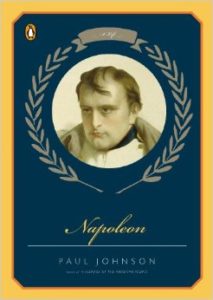The first item is a picture of me taken at ten-fifteen on the evening of February 6, 1956, thirty minutes after I was born. I weighed eight pounds and one-and-a-half ounces, and had the same broad nose and full lips that are my most prominent features a half-century later. My period of gestation was “uneventful,” my birth “normal,” my behavior “quiet.” A bill taped into the book reveals that Southeast Missouri Hospital of Cape Girardeau charged my parents $134.27 ($926.20 in today’s dollars) for the privilege of bringing me into the world….
Read the whole thing here.




 In today’s Wall Street Journal I review an important off-Broadway revival of Shelagh Delaney’s
In today’s Wall Street Journal I review an important off-Broadway revival of Shelagh Delaney’s  “A Taste of Honey” is the story of Jo (Rebekah Brockman), a 17-year-old girl-woman from Manchester who lives with Helen (Rachel Botchan), her sluttish, self-dramatizing mother, in a dingy flat with “a lovely view of the gasworks.” Jo has longings far beyond her station, but she is knocked off the track when she falls in love with and is impregnated by a black sailor (Ade Otukoya) who ships out without knowing that he‘s going to be a father. Unwilling to live with Helen and her latest lover (Bradford Cover) and determined to bear her child instead of aborting it, Jo invites her only friend, a homeless gay art student named Geof (John Evans Reese), to move in with her.
“A Taste of Honey” is the story of Jo (Rebekah Brockman), a 17-year-old girl-woman from Manchester who lives with Helen (Rachel Botchan), her sluttish, self-dramatizing mother, in a dingy flat with “a lovely view of the gasworks.” Jo has longings far beyond her station, but she is knocked off the track when she falls in love with and is impregnated by a black sailor (Ade Otukoya) who ships out without knowing that he‘s going to be a father. Unwilling to live with Helen and her latest lover (Bradford Cover) and determined to bear her child instead of aborting it, Jo invites her only friend, a homeless gay art student named Geof (John Evans Reese), to move in with her. Mrs. T and I just watched
Mrs. T and I just watched  For those seeking to fill in the blanks, Paul Johnson, the opinionated author of such supremely readable works of popular history as Modern Times and A History of the American People, has contributed a study of Napoleon to the Penguin Lives series of short biographies. The premise of these tasty little volumes is that it ought to be possible to sum up the life of a famous person in 200 pages or less. Seeing as how Johnson specializes in really, really long books, I wondered at first whether he was the best choice for the job, but within a few pages I knew that Napoleon is a near-perfect model of what a brief life can and should be: crisp, clear, concise and strongly personal.
For those seeking to fill in the blanks, Paul Johnson, the opinionated author of such supremely readable works of popular history as Modern Times and A History of the American People, has contributed a study of Napoleon to the Penguin Lives series of short biographies. The premise of these tasty little volumes is that it ought to be possible to sum up the life of a famous person in 200 pages or less. Seeing as how Johnson specializes in really, really long books, I wondered at first whether he was the best choice for the job, but within a few pages I knew that Napoleon is a near-perfect model of what a brief life can and should be: crisp, clear, concise and strongly personal. For my part, I found Napoleon: A Biography to be both solidly written and seemingly balanced. A professional biographer and part-time academic, McLynn devotes rather too much space to amateur psychoanalysis (I can’t remember the last time I read a book that quoted Wilhelm Reich with a straight face). Fortunately, it’s easy enough to skip over the bits about mother complexes and stick to the good stuff, of which there is plenty, including a generous helping of characteristically brutal quotations from the man himself: “If the people refuse what makes for their own welfare they are guilty of anarchism and the first duty for the prince is to punish them.”
For my part, I found Napoleon: A Biography to be both solidly written and seemingly balanced. A professional biographer and part-time academic, McLynn devotes rather too much space to amateur psychoanalysis (I can’t remember the last time I read a book that quoted Wilhelm Reich with a straight face). Fortunately, it’s easy enough to skip over the bits about mother complexes and stick to the good stuff, of which there is plenty, including a generous helping of characteristically brutal quotations from the man himself: “If the people refuse what makes for their own welfare they are guilty of anarchism and the first duty for the prince is to punish them.”